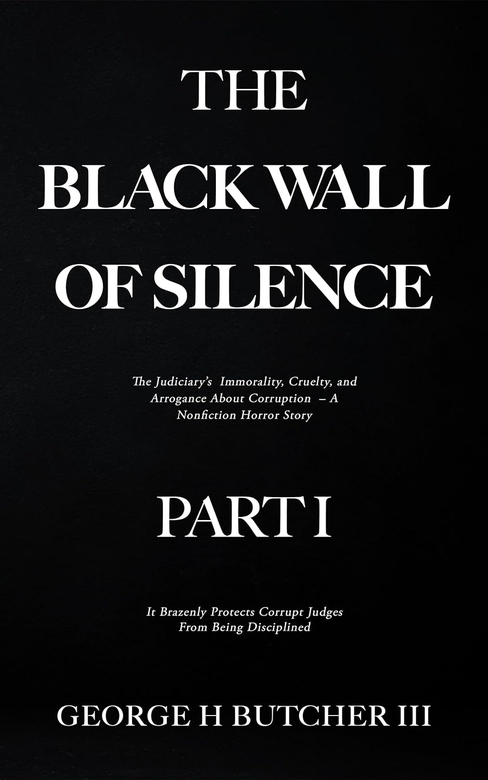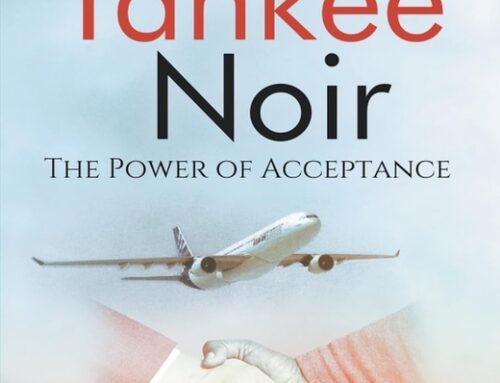
A searing takedown of the federal judiciary at its highest levels, The Black Wall of Silence Part 1: The Judiciary’s Immorality, Cruelty, and Arrogance About Corruption by George H. Butcher III is an impassioned argument worthy of widespread deliberation in the court of public opinion. While this first part of a longer series covers only a limited scope – the dynamic differences between judicial and police corruption, as well as the ways in which corrupt judges are protected by the Judicial Conference – it establishes an incredibly strong foundation for this four-part indictment, laid out in plain and provable terms.
Methodically presenting a litany of instances and accusations of corruption and negligence amongst respected members of the judiciary, the author argues not only against individual justices, but against the judicial system itself, which protects those compromised judges to maintain its own reputation. Thorough, indignant, and creatively argued, the book shares essential insider knowledge for lay readers, but also calls out political leaders, prosecutors, and criminal investigators at both the state and federal level for their lack of action and passive complicity in subverting the source of justice.
A critical point appears early in the book, but underpins many of the arguments going forward: “Grossly negligent official judicial actions would be objectively obviously and inexcusably deficient and should not be made by an honest judge. It is far more likely that provably grossly negligent conduct was intentional rather than accidental.” Leading with this perspective, the unfolding arguments in the rest of this first installment feel irrefutable; if we are to believe that federal judges are some of the most logical and legally sound professionals in the American judicial system, then it would be nonsensical to believe they wouldn’t recognize their own questionable and unethical actions.
The accusations leveled at five specific judges – and the broader judiciary system – are compelling and worthy of external investigation, but the manner in which the arguments are presented do undercut the author’s credibility. From exclamation marks in chapter headings to the somewhat patronizing use of long-form metaphors to explain accessible concepts, the writing often feels overworked and lacking in impartiality. If there is one thing this book argues, it is that judges are indeed biased in some of the decisions they make, and yet there is something suspiciously biased in the book’s adamant tone – one that doesn’t attempt to achieve an acceptable level of judicial impartiality. There is also some repetition of ideas and tautologies that could be addressed by an editor familiar with legalese.
Aside from those overarching critiques, the level of research and rhetorical skill on display here is undeniable, and the conclusions reached are far from outlandish, no matter the tone in presentation. Given the present balance of the Supreme Court, the increasing number of valid questions about the court’s own credibility, and the critical issues that await its sweeping decisions in the years ahead, this book is a brazen but necessary alarm bell for concerned citizens, whether they are familiar with the judiciary’s machinations or not.
Blunt in his thesis but dexterous in argumentation, Butcher delivers an incisive shot across the questionable bow of American government, which should be part of the public discourse.
Book Links
STAR RATING
Design
Content
Editing
Get an Editorial Review | Get Amazon Sales & Reviews | Get Edited | Publish Your Book | Enter the SPR Book Awards | Other Marketing Services























Leave A Comment